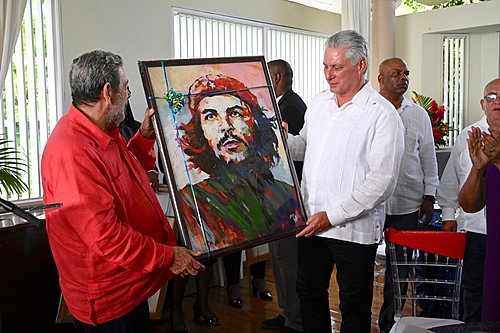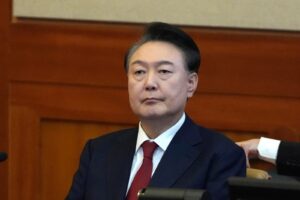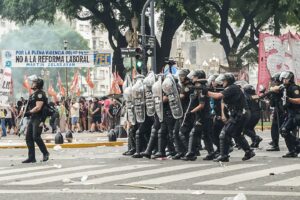
The VII CELAC Summit held in Buenos Aires came to an end and, with it, the conclusion of Argentina’s pro tempore presidency. In the assessment of what was accomplished in the period, the Minister of Foreign Affairs of Argentina, Santiago Cafiero, highlighted the hierarchy of the body as a multilateral regional body and positively evaluated the role played by the Caribbean, a region historically neglected in terms of alliances with America Latin.
The words of the Argentine Foreign Minister were not in vain: from 2023, the presidency of CELAC will be in the hands of the Prime Minister of Saint Vincent and the Grenadines, Ralph Gonsalves, of great prestige and influence throughout the Eastern Caribbean. São Vicente is a small island that is part of the ALBA and Petrocaribe alliance and has maintained good relations with Venezuela, Cuba and Nicaragua for many years. Its Prime Minister was also very critical of the role of the Organization of American States (OAS) in the region and has always supported the integration of the Caribbean with Latin America.
Ralph Gonsalves, also known as “Comrade Ralph”, is leader of the Unión Laborista de San Vicente (Working Union of San Vicente) party. A lawyer and doctor of philosophy, during his youth he adopted leftist ideas, present in two of his many books: Notes on some basic ideas of Marxism-Leninism and The spectrum of imperialism: the case of the Caribbean. Allied with Nicolás Maduro, Miguel Díaz-Canel and Daniel Ortega, at the age of 77, he managed to make his country the smallest and least populous state to assume the presidency of CELAC.
The mission that Gonsalves will face is not simple: the country arrives at this instance in succession to Argentina and Mexico, two regional powers, and for its election it had the support of the newly elected Brazilian president Luiz Inácio Lula da Silva. Gonsalves is serving his fifth term as Prime Minister of Saint Vincent and the Grenadines: he came to power in 2001 and was re-elected in 2005, 2010, 2015 and 2020. Currently, he also chairs the Caribbean Community (CARICOM), a space that brings together fifteen countries Of region. Gonsalves has on numerous occasions demanded economic reparation from the European powers for the role they played in the Atlantic slave trade.
São Vicente is a state of just under 400 square kilometers, made up of around 32 islands. Called Youloumain by its original inhabitants, it received its current name from Christopher Columbus, who landed on the islands in 1498. Its population then was a mixture of Caribbean communities, enslaved Africans and descendants of Europeans. In 1979, it gained independence from the United Kingdom and began its democratic period.
Like all Caribbean countries, Saint Vincent and the Grenadines is deeply concerned about climate change: despite being in a zone of volcanoes and hurricanes, the main threat to these islands is rising sea levels. Hence the importance of the new presidency of Celac: the joint containment of natural disasters, as well as an energetic policy to combat climate change, will be two of the central axes of Vincentian management.
In addition to these complexities, there is another common problem in the Caribbean: their economies are in deficit. Because it is a small territory and due to the particularities of its soils, production tends to be agricultural, and most of the food and inputs must be imported, a major imbalance for a country of just one hundred thousand inhabitants.
The link with Venezuela is no coincidence: in addition to the cheap supply of fuel through Petrocaribe, in 2022 Nicolás Maduro canceled all of São Vicente’s debt with Venezuela. On his Twitter account, Gonsalves’ last post dates back to December 2022, with photos of when he received a painting of Che Guevara from the hands of Cuban President Miguel Díaz-Canel.
Source: www.brasildefato.com.br

